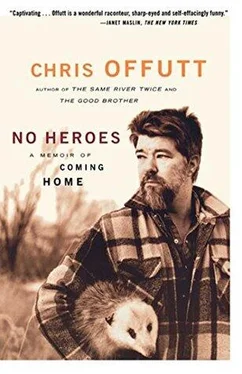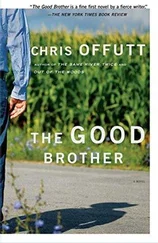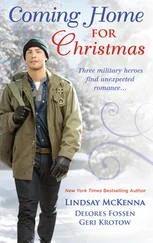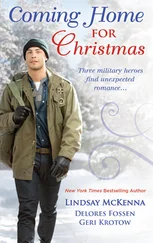Having been exposed to more progressive classrooms, Sam could not adapt to the oppressive climate of Kentucky. He said school was like an old movie where the teacher stood in front of the class and lectured, and the students couldn’t ask questions. I realized that nothing had changed since I was in school. I had come home to help my people and wound up hurting my son.
No one in my family ever asks about my work. Each book I publish scares them until they read it and feel a certain relief that I didn’t tell the worst. I know that Arthur leaves out the worst parts, too. He fears that telling his story might provide fuel to the forces of Holocaust Revisionism who will proclaim him a liar. He believes that nothing can halt the repetition of genocide.
“All the books about the war are full of lies,” he says.
“Why, Arthur?”
“When the victims write about their experience, there is a tendency to make themselves sound better than they were. Remember, Sonny, no heroes.”
I ask why he agreed to this book, and he says he worries about it: Did he get the English right? Does he come off like a whining victim? I tell him that no one can dispute the truth. Since he does not think of himself as a victim, he will not be viewed that way. Finally, I assure him that I cut out all his whining.
He chuckles, a brief sound letting me know he recognizes my attempt at humor.
“Last night,” he says, “I could not sleep. It disturbed me that my thoughts are on paper. I don’t want to say nothing nasty about you, Sonny, but do you understand what I tell you? Maybe I don’t use the right words. It makes me feel scared, a strange feeling. I hope you have written my heart.”
“I did my best, Arthur. You told your story. That’s all anyone can do.”
It occurs to me that I am treating Arthur the way my editor deals with me when I call under the grip of prepublication anxiety. Arthur wants to know if I worry about reviews. I dust off the ancient adage and trot it out for his perusal: A good review is helpful, but a bad review is better than no review.
“Besides,” I say, “reviews don’t matter.”
“Sonny,” he says, “I think you are lying a little.”
“You’re right, Arthur. But there’s nothing we can do. We have to hope for the best and accept what they say.”
“Who reviews books?”
“Very few people make a living at it. Some are professors. Some are writers.”
“Other writers review books?”
“It’s a way to make extra money. I do it, too.”
“Like the Jewish Police.”
“What do you mean?”
“In camp they help their friends and hurt their enemies.”
“I don’t know if it’s as simple as that.”
“Let me tell you something, Sonny. Something I learned in life. Everything is simple. So simple. Much simpler than you think. Help your friends, hurt your enemies.”
“Do you have any enemies?”
“No, Sonny. I have outlived them all.”
“Then you’ve got nothing to worry about.”
He says good-bye and hangs up. He’s right, of course. The world is a simple place. It is the imagination that makes it complex, and writers are highly imaginative people. Arthur is reacting like a writer with the jitters, but he’s not a writer, he’s the page on which history was written. Arthur is the book.
The phone rang. I answered and my mother told me that my father would call later and invite me to lunch.
“It would mean a lot,” she said.
“Okay. We’ll meet in town.”
“He wants you to pick him up.”
“Okay. Maybe we can eat a late lunch and he can ride back home with you after work.”
“He wants you to take him to a place in Carter County. It’s his favorite restaurant.”
I said okay and hung up the phone. The conversation surprised me because my father has never been interested in spending time with me. He did not visit when I was single in my twenties or married in my thirties. His reasoning was simple: He avoided airplanes due to a leg wound he received while fighting in the army of Genghis Khan. My father was completely serious about being stabbed in another life. It was important that I understand he was not a cavalryman or an officer, but a mere foot soldier.
The only time I remembered seeing my father in a restaurant was the occasion of Arthur and Irene’s first visit to Morehead. In a far corner of the restaurant sat a mother with a crying baby. My father stood and pretended to draw a pistol from an imaginary holster. He slowly and deliberately screwed a silencer onto the barrel. He extended his arm, aimed his finger at the baby, and pretended to shoot it three times. He returned the pistol to its invisible holster and continued eating in a casual manner. Arthur and Irene looked at each other and then at their plates. They said nothing for a long time.
No one in my family ever served in the military. My grandfathers came of age between the world wars and I missed Vietnam by four years. I have no uncles. My father suffered a severe asthma attack at his physical for air force induction during the Korean War. He was spared combat and never had asthma again.
The phone rang and I picked it up with the trepidation I always felt when anticipating a call from home. My fathers phone manner was a remnant of his salesman days — fake voice pitched low, a bullying cheer that brooked no options.
“I was thinking we’d have lunch today,” he said.
“Okay. Can we meet in town?”
“No, that won’t suit me. You can pick me up and we’ll go to a restaurant in Carter County.”
“Okay.”
“I want to eat lunch with each of my kids. It might be the last time.”
“Okay.”
He told me what time to arrive and when I said goodbye, he said cheerio in a British accent copied from television. We’d never shared any private meal together — no breakfast, lunch, supper, snack, coffee at a diner, or milkshake at the drugstore. He saw tomorrow’s meal as the last lunch, but I knew it as our only lunch. I felt certain that his insistence meant he had something important to tell me.
Rita was surprised by the phone calls from my parents.
“They want you to drive sixty miles roundtrip for lunch. Why not meet in town?”
“I don’t know,” I said. “It doesn’t matter.”
“I don’t understand.”
“Maybe it’ll be a memorable lunch. I hope so.”
“You always hope things like that,” she said. “What you should do is say something meaningful instead of waiting for your father to.”
I drove to town and past the old Trail Theatre. The only other time I remembered being alone with my father was at a movie when I was twelve. I was so excited I could barely talk, and when I did, the words came out in a rush that irritated him immensely. The movie was Billy Jack. At the concession stand my father picked candy for me, a kind I didn’t like. After the movie we went to the bathroom, and he said that I was an Alpha male. He told me that an Alpha male is more or less the boss dog of any outfit. It meant that pretty women liked to talk to you, and that men naturally looked to you for orders. He said that there were also Beta males, which were plumbers, doctors, and engineers. And below that were Gamma males, which included everyone else. My father assured me that I was an Alpha male. He said that there were three types, and that Billy Jack was an Alpha Two. He waited long enough for me to understand that I was supposed to ask who was an Alpha Three, which I did.
“Me,” he said.
The road up the hill to my parents’ house was blacktop now instead of dirt, and I remembered that during election years it received a fresh coating of rock dredged from the creek, full of broken glass, old boots, and angry snakes. Walking the woods was much safer than the road. The trees in my parents’ yard were taller, and the spreading boughs cast more shade. The edge of the hill had fallen away. As the earth receded, the woods approached like the sea eating away the beach. I wondered how long until the entire hill went over the hill.
Читать дальше












